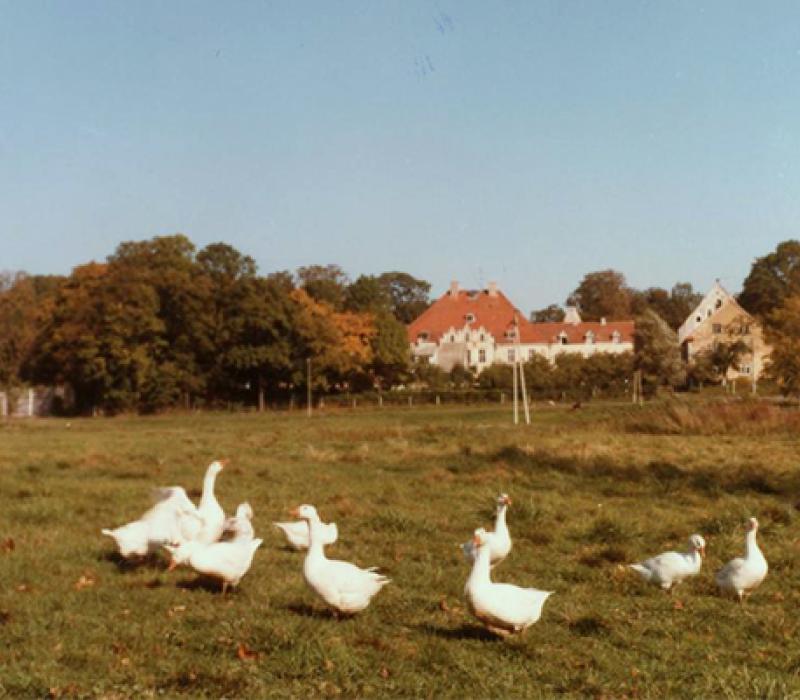Old and New Home. Steinort becomes Sztynort - a Masurian village after 1945

Old and New Home. Steinort becomes Sztynort - a Masurian village after 1945
After World War II, Masuria in former East Prussia became part of Poland. After the German population had largely was displaced or expelled, the Masurian village of Steinort was also repopulated. Until 1945, the village was widely known as the seat of the Counts of Lehndorff. The last lord of the castle, Heinrich von Lehndorff, was part of the resistance of 20 July 1944.
Ulla Lachauer tells of Poles, Ukrainians and Belarusians, most of them displaced persons from Transcarpathia, Volhynia and the area around Vilnius, who moved into the houses of the displaced Steinorters after 1945. Like the few Masurians who remained, they struggled to survive and had to find their way in socialist Poland. The centre of the village of Sztynort was the "Pałac": Lehndorff's castle was now the seat of the agricultural production cooperative.
On the panel, Agata Kern, Piotr Wagner, Ulla Lachauer and Andreas Kossert discuss how the settlers of different origins came together. What paths did their children and grandchildren take? What happened after 1989? Among the issues that Sztynort still has to face today is the concern about the decaying castle.
Programme
Welcome Dr. Nils Köhler, Documentation Centre for Displacement, Expulsion, Reconciliation
Introduction: History and Culture of Masuria Dr. Andreas Kossert, Documentation Centre for Displacement, Expulsion, Reconciliation
Migration stories around Steinort/Sztynort Ulla Lachauer, and documentary filmmaker
Podium Ulla Lachauer Dr. Andreas Kossert Agata Kern, native of Sztynort, cultural advisor at the East Prussian Regional Museum in Lüneburg Piotr Wagner, cultural worker, interpreter and tour guide in Sztynort
Free admission
An event in cooperation with the Cultural Department for East Prussia and the Baltic States at the East Prussian Regional Museum in Lüneburg and the German-Polish Society Berlin e.V.